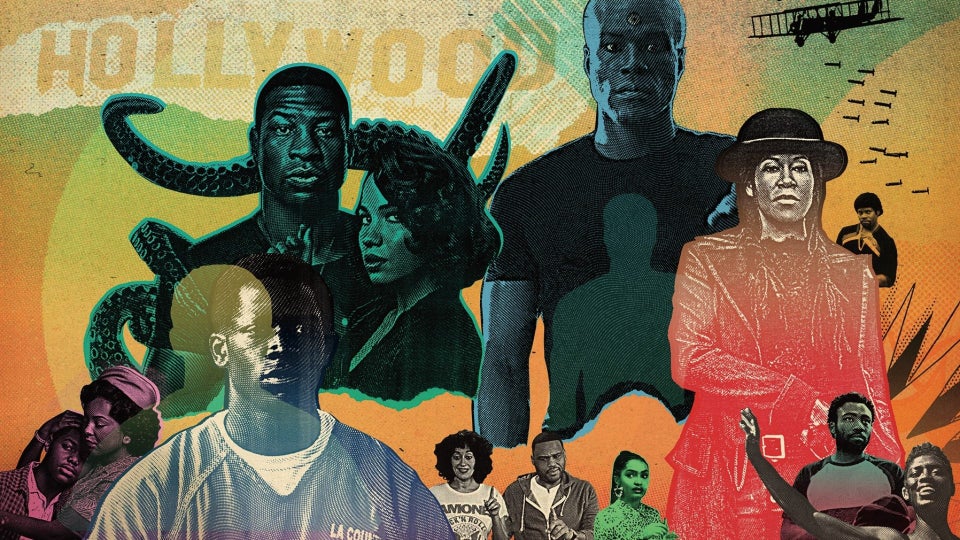 Illustration by Jimmy Turrell By Rachaell Davis ·Updated February 5, 2022
Illustration by Jimmy Turrell By Rachaell Davis ·Updated February 5, 2022
Over the past decade, an influx of Black decision-makers in writers’ rooms and directors’ chairs has meant seeing our stories chronicled in film and TV—in ways that refuse to sacrifice hard truths to render Black life more palatable for the masses.
In Women of the Movement (that aired on ABC last month), for example, the story of Emmitt Till is told, not to rehash his gruesome murder in a manner that could be perceived as “trauma porn,” but rather to give a voice to his mother and spotlight the role her activism played in the success of the Civil Rights Movement. And last year, Misha Green’s Lovecraft Country brought to life the experience of Black travelers in a sundown town in the 1950s, while the devastation of the 1921 Tulsa Race Massacre became a crucial plot point in the Regina King–led drama series Watchmen.
ABC’s “Women of the Movement” stars Cedric Joe as Emmett Till and Adrienne Warren as Mamie Till-Mobley. (ABC/Matt Sayles)The fictional and nonfictional story lines in Ava DuVernay’s Queen Sugar, When They See Us and Colin in Black & White connect the dots between the Black history our ancestors lived and the lasting remnants of that era—as we navigate the same economically crippling social construct that is systemic racism today. Similarly, the late John Singleton’s drama Snowfall explores the government’s documented involvement in the crack cocaine epidemic that ravaged Black communities in Los Angeles in the 1980s and 1990s.
Through relatable comedic relief, Issa Rae’s Insecure and Donald Glover’s Atlanta humanize the non-monolithic, everyday lives of young Black millennials of varying social classes. Both series also highlight the evolution of predominantly Black neighborhoods—amid longstanding social issues, such as gentrification and economic instability, that continue to shape those communities.
Photo Credit: ESSENCEMeanwhile, the effects of today’s social awakening on young minds are being amplified through timely television series. An episode of Kenya Barris’s Grown-ish saw college seniors stand in unison during their commencement ceremony, in protest of the school’s financial support of private prisons; and executive producer and showrunner Nkechi Okoro Carroll’s All American showed high school athletes taking a knee and forfeiting their final football game to demand justice for a young Black woman killed by police.
Loading the player…In film, movies like Melina Matsoukas’s and Lena Waithe’s Queen & Slim and writer and co-director Travon Free’s Two Distant Strangers bring Black social commentary to life through unexpected scenarios. And projects inspired by real-life American icons—like One Night In Miami, directed by King, and The Harder They Fall, directed by Jeymes Samuel—brilliantly marry historical fact with Hollywood magic to show audiences possibilities beyond what many dare to dream.
Without apology, today’s Black creatives are doing the work to ensure that tomorrow’s audiences are privy to yesterday’s culture-defining moments, even as they widen the space for historical accounts of Black hardship and triumph—and the forgotten narratives in between—to truly live forever.
This article originally appeared in the January/February 2022 issue of ESSENCE magazine, available on newsstands now.
The post How Black Creatives Are Fearlessly Defining The Culture In Hollywood appeared first on Essence.

0 Commentaires